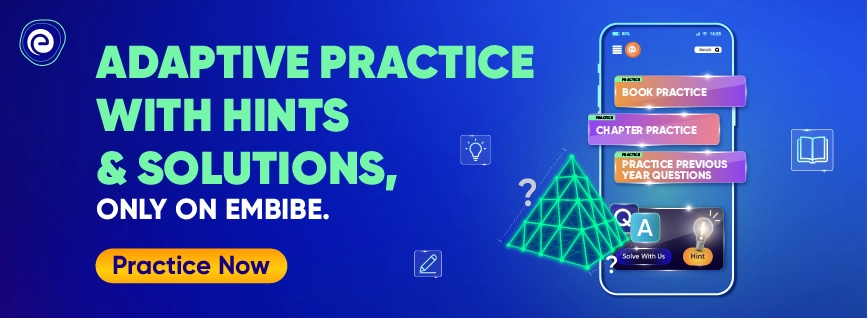- Written By
Pritam G
- Last Modified 28-01-2023
CBSE Class 8 Sanskrit Syllabus 2022-23
CBSE Sanskrit Class 8 Syllabus: Sanskrit is one of the most important subjects in Class 8 CBSE. Therefore, students opting for the same should practice Sanskrit Class 8 Chapters 1 and 2 and the others thoroughly. In CBSE Class 8, Sanskrit is often provided as an optional language study. While English and Hindi are important, students have the flexibility to choose a third language study.
Students who choose Sanskrit as their third language need to ensure that they follow the NCERT Solutions Class 8 Sanskrit. Being familiar with the syllabus will help students calculate the important topics and prepare for the exam accordingly. While preparing for CBSE Class 8 Sanskrit, students need to ensure that they give equal importance to each chapter for a better understanding. Scroll down to find details of the CBSE Sanskrit Class 8 syllabus.
CBSE Sanskrit Class 8 Syllabus 2022-23
The CBSE Sanskrit syllabus for Class 8 has mainly four sections, namely:
- 1st Section: खंड: क – अपठित अवबोधनं – 10 अंक
- 2nd Section: खंड: ख – रचनात्मककार्यं – 15 अंक
- 3rd Section: खंड: ग – अनुप्रयुक्त व्याकरणं – 25 अंक
- 4th Section: खंड: घ – अपठित अवबोधनं – 30 अंक
As students may know, the CBSE recommends the NCERT textbooks for the respective subjects. The NCERT textbook for Class 8 Sanskrit is called Ruchira (Tritiya Bhag).
The different chapters in the CBSE syllabus for Class 8 Sanskrit that are included in the NCERT Sanskrit textbook for Class 8are as under:
- सुभाषितानि
- बिलस्य वाणी न कदापि मे श्रुता
- भगवदज्जुकम्र
- सदैव पुरतो निधेहि चरणम
- धर्मे धमनं पापे पुण्यम
- प्रेमलस्य प्रेमल्याश्च कथा
- जलवाहिनी
- संसारसागरस्य नायकाः
- सप्तभगिन्यः
- अशोकवनिका
- सावित्री बाई फुले
- कः रक्षति कः रक्षितः
- हिमालयः
- आर्यभटः
- प्रहेलिकाः
NCERT Solutions for Sanskrit Class 8 Grammar
CBSE Class 8 Sanskrit व्याकरण भागः
- वर्णविचारः
- पद-विचारः
- सन्धि-प्रकरणम्
- शब्द-रूपाणि
- संख्यावाचक-विशेषणपदानि
- सर्वनाम-प्रकरणम्
- धातुरूप-प्रकरणम्
- उपसर्ग-प्रत्यय-प्रकरणम् च
- समास-प्रकरणम्
- समयलेखनम्
- कारक व उपपद विभक्तियाँ
- अव्यय-प्रकरणम्
- शुद्ध-अशुद्ध-प्रकरणम्
- परिशिष्टभागः
Now, students would have the detailed CBSE syllabus for Class 8 Sanskrit. Students must make sure they finish every topic. As mentioned above, Sanskrit is a scoring subject, but it needs regular revision and practice. So, allocate time for the subject accordingly.
Class 8 is very important in the life of a student. If a student has a clear understanding of all the concepts and topics included in the CBSE syllabus for Class 8, it will help them in higher classes. Especially for various competitive exams, which test the analytical skills and critical thinking, clearing basics is a must. Otherwise, students will face extreme difficulty understanding the higher-level concepts in higher classes.
So, make sure the basics for all the concepts in the syllabus are clear. Even though annual exams in school are based mostly on theoretical questions, solve multiple questions and problems for Science and Maths. This will be of immense help, especially in competitive exams, like NTSE and Olympiads. Students can practice the CBSE Class 8 practice questions and take CBSE Class 8 mock tests for Maths and Science on Embibe. These are available for.
FAQs
Q.1: Is Sanskrit a compulsory subject in Class 8 under CBSE? Ans: No, Sanskrit is not a compulsory subject for CBSE class 8. Students have the option to choose a language apart from English and Hindi as they are mandatory. Students can choose one out of Assamese, Sindhi, Sanskrit, Gujarati, Kannada, Marathi, Bengali, Malayalam, Manipuri, Oriya, Punjabi, Tamil, Telugu, Kashmiri, Urdu, Lepcha, Limbu, Bhutia, Arabic, Persian, French, German. Portuguese, Tibetan, Russian, Spanish, Nepali, and Mizo.
Q.2: Is Sanskrit a scoring subject? Ans: Yes, Sanskrit is a highly scoring subject if students can spare an hour for this every day.
Q.3: Which book do students have to refer to for CBSE Class 8 Sanskrit? Ans: The CBSE recommends the NCERT textbooks for the respective subjects. The NCERT textbook for Class 8 Sanskrit is called Ruchira (Tritiya Bhag).
Q.4: How can one score good marks in CBSE Class 8? Ans: To score good marks in CBSE Class 8, students should make sure their basics for all the concepts in the syllabus are clear. They should practice and revise regularly in order that the concepts get imprinted properly.
Q.5: Does the CBSE Class 8 Syllabus help with various competitive exams? Ans: The CBSE Class 8 Syllabus helps you in various competitive exams like NTSE and Olympiads.








































